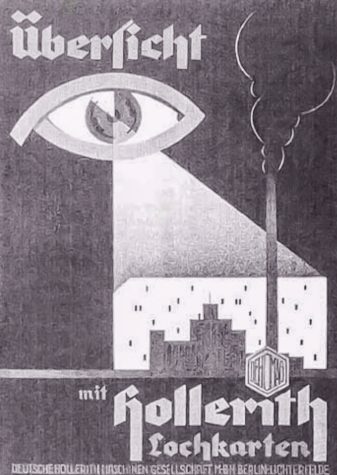At a time when monuments that honor controversial historical figures are being taken down, many of Lafayette’s landmarks have escaped criticism. However, there is one building on campus with a little-known history and connections to a namesake who was honored with a medal from Adolf Hitler: Watson Hall.
Thomas J. Watson served as the chairman and CEO of IBM, overseeing the company from 1914 until his retirement in 1956. He was a trustee of Lafayette, as well as Columbia University. According to Albert W. Gendebien’s “The Biography of a College,” Watson and his wife Jeannette Kittredge Watson — whom the Watson Courts are named after — donated funds to the building of Watson Hall, originally named the Watson Hall of International Affairs, as part of a $150,000 gift. Watson Hall was dedicated in the fall of 1949.
Watson was heavily involved in the college in other ways as well. College archivist Elaine Stomber wrote in an email that Watson served as the vice president of Lafayette’s Board of Trustees from 1940 to 1956. He also worked on a special survey committee where he lent the services of IBM personnel to assist with necessary changes.
During World War II, Watson served as the general sales manager of IBM. Some historians have argued that under Watson’s leadership, IBM technology — specifically their punch cards — helped Hitler automate the persecution of Jewish people during the Holocaust by identifying individuals to be deported to Nazi concentration camps.
In 1928, IBM introduced a version of the punch card that would become a major medium to store, sort and report data for nearly four decades, according to IBM’s website. This punch card was a precursor to the computer. As late as the mid-1950s, punch card sales made up 20 percent of IBM’s revenues and 30 percent of its bottom line.
Edwin Black argues in his 2001 book “IBM and the Holocaust” that Watson sold IBM punch cards to Nazi Germany knowing what atrocities the technology would lead to. Black wrote that by the start of World War II in 1939, IBM was supplying Nazi Germany with more than a billion punch cards a year.
Black wrote that the punch cards were used to identify Jewish people to be targeted for asset confiscation, ghettoization, deportation and ultimately extermination. Such a task would require searching through generations of communal, church and governmental records across Germany. Black argues that a census of this scale would not be possible without IBM’s punch card technology.

According to Black, people and asset registration was only one of the many uses Nazi Germany found for the punch card technology. Punch cards also allocated food and allowed Nazis to starve Jewish people, managed slave labor in concentration camps and ensured that the trains run on time.
“The Holocaust would still have occurred without IBM,” Black wrote. “To think otherwise is more than wrong … But there is reason to examine the fantastical numbers Hitler achieved in murdering so many millions so swiftly, and identify the crucial role of automation and technology.”
Watson himself possessed a sympathy for and investment in Germany. In a 1937 letter to Nazi Economics Minister Hjalmar Schacht, Watson wrote, “I have felt a deep personal concern over Germany’s fate and a growing attachment to the many Germans with whom I gained contact at home and abroad. This attitude has caused me to give public utterance to my impressions and convictions in favor of Germany at a time when public opinion in my country and elsewhere was predominantly unfavorable.”
He added that the world must extend “a sympathetic understanding to the German people and their aims under the leadership of Adolf Hitler.”
In 1937, Hitler awarded Watson the Merit Cross of the German Eagle with Star, the highest medal that could be conferred on a non-German at the time. The medal was created for Watson to “honor foreign nationals who made themselves deserving of the German Reich.” It ranked second in prestige only to the German Grand Cross.
Watson only returned the medal in 1940 during a fever pitch of anti-Nazi sentiment in the United States.
Not all scholars agree that Watson and IBM knowingly contributed to the Holocaust. Raul Hilberg, author of “The Destruction of the European Jews,” said in a Washington Post article in response to Black’s book, “The notion that the Nazis needed sophisticated technology to be efficient is wrong. Efficiency can be produced by people, with what we regard as very primitive means, like pencil and paper.”
IBM has also rejected Black’s claims.
“Since its publication, the research behind the book and the conclusions reached by its author have been questioned … In addition, Mr. Black is asserting that IBM is withholding materials regarding this era in its archives. There is no basis for such assertions and we deplore the use of such claims to sell books,” IBM said in a 2002 press release.
Given how entrenched Watson was in Lafayette’s history, it is unclear whether a change to Watson Hall’s name will occur anytime soon.























































































































